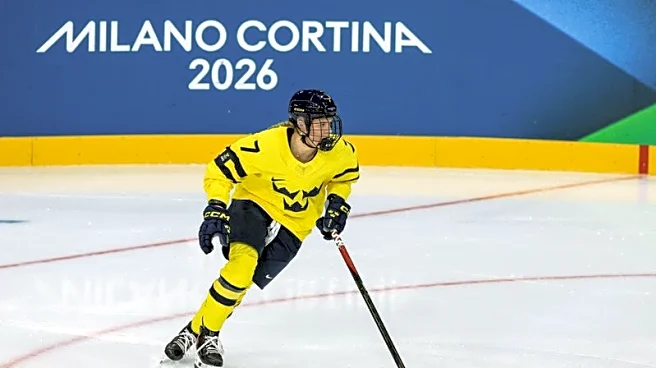What is the story about?
What's Happening?
Presnel Kimpembe, a former French national team defender, has transferred from Paris Saint-Germain (PSG) to Qatar Sports Club. This move comes after Kimpembe faced significant injury challenges over the past two years, including a serious Achilles tendon injury that required surgery. Kimpembe, who is 30 years old, has been with PSG since his youth, making 241 appearances for the club. His contract with PSG was set to expire at the end of the current season. Despite his past achievements, including winning the 2018 World Cup with France, his playing opportunities have been limited due to his injuries.
Why It's Important?
Kimpembe's transfer to Qatar Sports Club marks a significant shift in his career, potentially offering him a fresh start after his injury setbacks. For PSG, this move signifies a change in their defensive lineup, as they part ways with a long-standing player. The transfer also highlights the growing appeal of Qatar Sports Club as a destination for international players, reflecting broader trends in global soccer where clubs outside of Europe are increasingly attracting talent. This could impact the dynamics of player transfers and the competitive landscape in international soccer.
What's Next?
Kimpembe's future at Qatar Sports Club will likely depend on his recovery and ability to regain his form post-injury. The club may provide him with the necessary support and playing time to rebuild his career. For PSG, the focus will be on strengthening their defense with new talent to fill the gap left by Kimpembe. Additionally, this transfer may influence other players considering moves to clubs outside Europe, potentially increasing the visibility and competitiveness of leagues in regions like the Middle East.
Beyond the Headlines
The transfer of Kimpembe to Qatar Sports Club could have broader implications for the perception of Middle Eastern clubs in the global soccer community. As more high-profile players join these clubs, it may lead to increased investment and development in the region's soccer infrastructure. This trend could also encourage other players facing similar career challenges to consider opportunities in less traditional soccer markets, potentially diversifying the global soccer landscape.

















